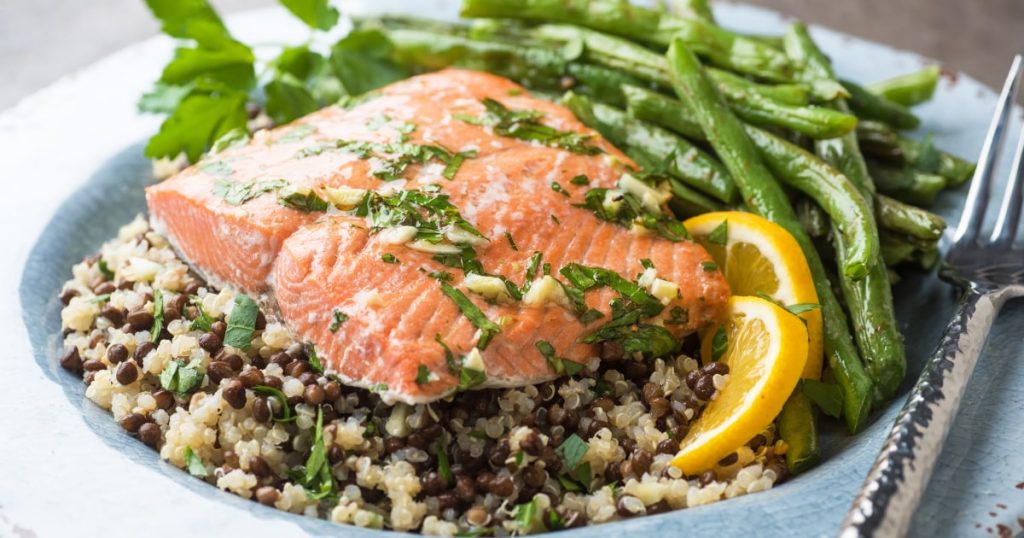Protein is an essential macronutrient that helps keep the body strong, full, and energized throughout the day. A lack of protein in the diet can lead to symptoms such as muscle fatigue, difficulty building muscle, weak nails, and more. Protein is made up of amino acids, which play a vital role in repairing muscle and tissue, building bones and cartilage, and supporting immune system health. To determine how much protein you need, factors such as age, weight, sex, and activity level should be considered.
The recommended dietary allowance for protein is generally 0.8 grams per kilogram of body weight, with older adults needing around 1.2 grams per kilogram. Pregnant or breastfeeding individuals, those trying to build muscle, or those with specific health conditions may require more protein. To ensure an adequate intake of protein, aim for 20 to 40 grams at each meal and include protein-rich snacks throughout the day. Lean meats, fish, eggs, dairy, beans, legumes, nuts, and seeds are all excellent sources of protein that can be incorporated into a balanced diet.
High-protein foods such as chicken, turkey, salmon, tuna, lean beef, Greek yogurt, tempeh, cottage cheese, black beans, eggs, lentils, chickpeas, peanut butter, flaxseeds, nuts, seitan, tofu, and chia seeds are all nutritious options to meet your daily protein needs. These foods provide a range of health benefits in addition to protein, such as fiber, healthy fats, and various vitamins and minerals. Incorporating a variety of high-protein foods into your meals can help support overall health and wellness.
Chicken and turkey are versatile protein sources that can be used in a variety of dishes. Salmon and tuna offer high protein content and are easy to prepare. Lean beef and ground turkey can be included in many recipes. Greek yogurt and cottage cheese are convenient options for a protein-packed snack or meal. Plant-based sources like black beans, lentils, chickpeas, and nuts offer protein and fiber for optimal health.
Incorporating high-protein foods into your diet is essential for maintaining muscle health, supporting a healthy metabolism, and overall wellbeing. Whether you prefer animal-based or plant-based protein sources, there are plenty of options to choose from. Experimenting with different recipes and meal ideas can help you find delicious ways to meet your daily protein requirements. Consult with a registered dietitian to determine the right amount of protein for your specific needs and lifestyle.


